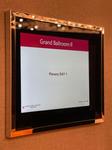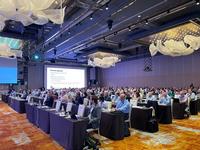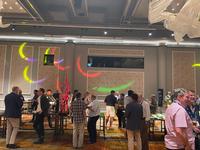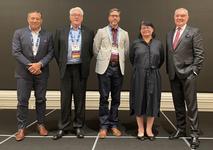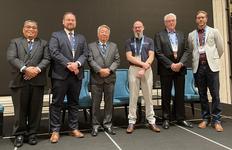You are here : Home > Industry Events > 2024 Plenary Highlights
2024 Plenary Highlights
Updated Thursday 02 May 20242024 ICPC Plenary in Singapore (Day 2)
Day 2 of the ICPC plenary was packed with insights, discussions, and presentations with key highlights and takeaways provided below. If any of these summaries pique your interest, download the full presentation when available on the ICPC website, or reach out directly to the presenters.
Aileen Chia – Director General, Telecoms and Post, IMDA – provided insights into the how Singapore is actively advancing their digital connectivity blueprint, which includes data centers and the networks that interconnect them, overland and undersea. Singapore plans to increase the number of submarine cables over the next decade to ensure Singapore continues to be as a major hub in Southeast Asia well into the future. Also highlighted was the increasing density of undersea cables – both telecom and power – in busy shipping lanes. This means that ongoing collaboration between stakeholders, including the ICPC and other organizations, must continue to proactively protect critical submarine network infrastructure.
Joon Ping Joshua Ang, Director of Submarine Cable Systems at Singtel, gave his “What Do Submarine Cable Operators Need?” presentation covering cable fault causes, creating win-win governance for different seabed users, collective cooperation to reduce the number of cable cuts, and improving economics. Over the past 3 years, 70% of cable faults were attributed to human activities – anchoring and fishing – to clearly highlight the need for increased cross-industry collaboration, governance, data sharing, and training.
Dr. Lorraine Gray, Director of Permitting at Pioneer Consulting, presented “Challenges and Expectations of Zoning for Submarine Cables”. Although zoning has been around for decades (ex. marine protect areas, shipping lanes, housing), islands feel more pressure to zone for reasons such as increasing energy or food production. Lorraine explained the complications between England and Scotland for zoning around the Shetland Islands, where Scotland wants non-sectoral zoning based on intensity of use while England wants sectoral zoning to facilitate aquaculture production. Proper evidence-based zoning is critical, and often contentious, as it involves socioeconomic and environmental factors that can be in opposition. Submarine cable zoning approaches taken in Indonesia, Bermuda, New Zealand, and Singapore were also discussed.
Andy Palmer-Felgate, Submarine Cable Engineer at Meta, presented his annual “Global Cable Repair Data Analysis”. In 2023, there were 206 repairs in 136 jurisdictions with the longest repair taking 947 days. Analysis data contributions come from all major marine maintenance providers worldwide. The repairs are reported by their locality in a country’s Territorial Waters (TW), Exclusive Economic Zone (EEZ), or on the High Seas – the exact locations are withheld and not shared with the ICPC. Analysis showed 44% of repairs occurred in TW, 54% in the EEZ, and 2% in the High Seas showing that cables are most vulnerable closer to shorelines in shallower waters. Repair response times more than doubled in 10 years for a variety of reasons explained with data in the presentation, to be available for download on the ICPC website.
Simon Webster from NEC moderated the “Cable Sensing” panel with panelists Nicholas Koopalethes from Global Broadband Solutions, Dr. Jan Petter Morten from ASN, and Dr. Nate Lindsey from FiberSense. They discussed various sensing technologies that can be used for cable protection, environmental monitoring, and natural disaster risk reduction. For example, sensing could be used to track significant marine activity not revealed by an Automatic Identification System (AIS), which transmits a ship’s position, which is useful given that around 70% of all submarine cable faults are caused by anchoring and fishing activities.
Dr. Michael Clare, ICPC Marine Environmental Adviser, provided a marine environmental update covering the vulnerability of small islands to natural hazards, climate change, sensing with cables, recovery and recycling of out-of-service cables, and human activities in areas beyond national jurisdiction. The diversity of cable routes and landing stations remains critical, especially for small remote islands, as evidenced by the recent undersea volcano eruption off the coast of Tonga. The undersea Congo Canyon off the coast of West Africa has wreaked havoc on nearby submarine cables (ACE, WACS, SAT3, UNSC) with 14 cable faults since 2020, due to turbidity currents and seabed movements. There are over 9,000 undersea canyons worldwide, with over 7,000 land-detached, that pose threats to cables, such faults that occurred in the Whittard, Trou Sans Fond Canyon, and Congo Canyons. When Mother Nature is angry, cables are at risk.
Scott McMullen, from the Oregon Fishermen's Cable Committee, presented a case study of an “Intriguing AIS Target Loitering Near a Cable”, the cable being Trans-Pacific Express. AIS can be used for cable security by terrestrial observers monitoring potential threatening activities near submarine cables and can also be used to determine what vessels were nearby a submarine cable when it was damaged. Scott provided a fascinating view into the process that occurred in the background while tracking the suspicious vessel. The “vessel” was likely an improperly programmed AIS fishing net buoy, which is available online for ~ US$60.
Weibing Shu, from HMN Tech, presented “Utilizing ICPC Recommendations for Submarine Cable Project in the Oil & Gas Industry—Compliance or Compromise?”, a case study of interconnecting offshore platforms. Unique challenges and characteristics of submarine cables in the O&G industry was covered, such as routing in approaching areas to platforms and the azimuth/location for cable riser systems. Trunk routes, and branching routes in highly congested areas, were said to be points of compliance and compromise related to applicable ICPC Recommendations and conventional practices.
Keir Preedy, from Solomon Submarine Cable Company, presented a “Vessel Damage to Solomon Islands Domestic Network – Impact, Repair, and Reparations” case study related to damage to the Solomon Islands Domestic Network cable network connecting Taro (Choiseul Island), Noro (New Georgia Island), and Auki (Malaita Island) to Honiara (Guadalcanal Island). Root cause analysis, using AIS vessel tracking data, showed anchoring had occurred in a clearly marked no anchoring zone. The vessel was quickly arrested and detained until lost revenues and repair costs were resolved with a settlement for the entire claim.
Kent Bressie, ICPC International Cable Law Adviser, presented an update on legal and regulatory matters such as the US Extended Continental Shelf (ECS), regional developments, cabotage, and risks posed by dark fleet ships. For more details on this comprehensive session, download the complete presentation.
Quynh Nguyen, from OEC, presented “Navigating the Sea of Sustainability – Carbon Footprint Reduction in Subsea Cable Recovery and Recycling”, a timely topic given increased focus on sustainability worldwide. Quynh discussed where we are now, what’s next, and what can be done better, as it pertains to submarine cable recovery of which only 4% of decommissioned cables has been recovered thus far. A submarine cable case study, and its carbon footprint across its complete life cycle was discussed, which was eye opening.
Mathew Brown, from Starboard Maritime Intelligence, presented “Maritime Domain Awareness, from Fishing to Fibre” where he discussed applying algorithms and machine learning to extensive maritime data to support the protection of cables from fishing vessels and malicious activity. A case study for a submarine cable incident that occurred in a protected zone off the coast of Perth, Australia, was presented. Using AIS and data analysis, the shipping vessel responsible for the cable damage was identified and charged.
Day 2 is a wrap!
Come back tomorrow for the summary of Day 3 of the ICPC plenary being held in Singapore.
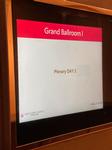
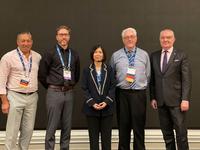
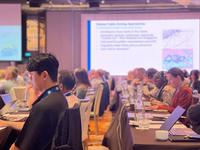
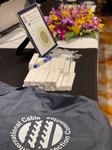
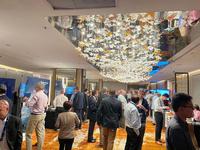
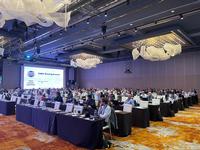
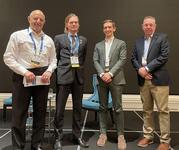
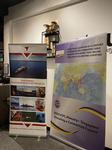
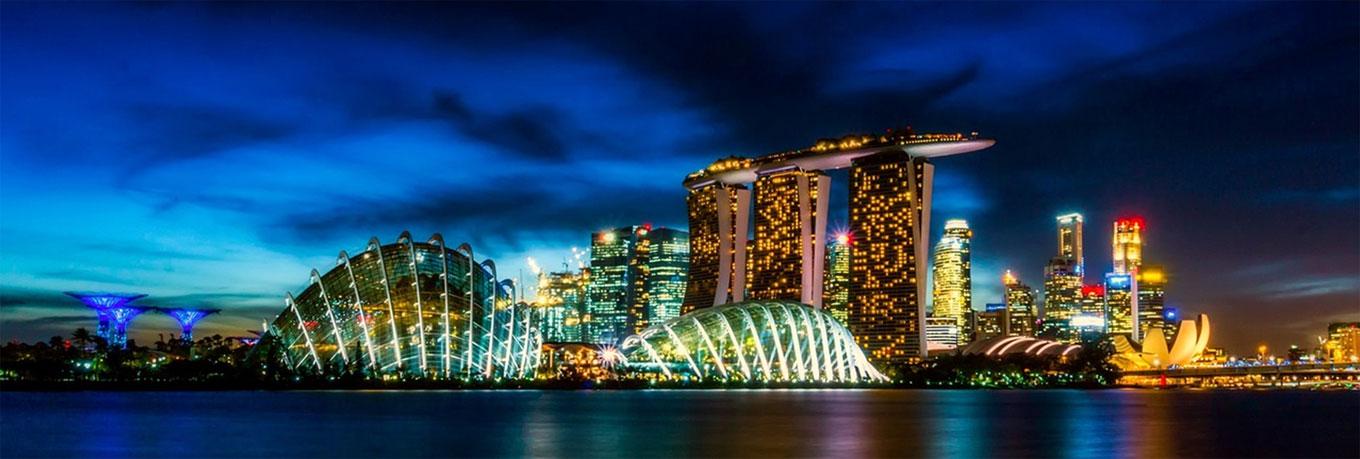
2024 ICPC Plenary in Singapore (Day 1)
Graham Evans (ICPC Chair) and Ryan Wopschall (ICPC General Manager), opened this year’s plenary in Singapore with the theme of ‘Ensuring a Connected Future.’ The last plenary held in Singapore back in 2011 hosted about 90 attendees while this year’s plenary in Singapore will host over 200 attendees.
The ICPC mission is to be the world’s leading organisation promoting submarine cable protection and resilience. The ICPC vision is a global network of reliable and resilient submarine cables that coexist with the marine environment. To foster this mission and vision, the following concepts will be covered in this year’s plenary that aligns to the ICPC slogan of sharing the seabed and oceans in harmony.
- Applying new and emerging technologies
- Learn from project case studies
- Understand emerging issues, challenges, and proposed solutions
- Operating in crowded marine areas
- Managing increasing regulation
- Defining sustainability in relation to cable protection
- Climate Change Hotspots
- Carbon Disturbance
- Volcanic Hazards for Subsea Cables
Annual updates from the ICPC Working Groups below were given, and as their accomplishments are too vast to succinctly summarise, members can download their presentations from the ICPC website for more details.
- Affiliations – Andrés Fígoli (Fígoli Consulting)
- Business Plan– Alasdair Wilkie (Digicel Group Limited)
- Cable Materials– Alwyn Du Plessis (Mertech Marine)
- Fish Aggregation Device – Andy Palmer-Felgate (Edge Network Services Limited)
- Media & Public Relations – Dean Veverka (Southern Cross Cables Limited)
- Mining & BBNJ – Kent Bressie (ICPC International Cable Law Adviser)
- Recommendations Steering – John Wrottesley (ICPC Project Manager)
Dr. Mike Clare (ICPC Marine Environmental Adviser) summarized the wealth of work done over the past year, including evidence-based liaisons with several industry groups and stakeholders. Key environmental topics and their potential impact of submarine cables include climate change, recovery and recycling, human activities in areas beyond national jurisdiction, extreme natural events (ex. undersea volcanos), sensing, and much more. As increased attention is placed of marine environments, its critical for the ICPC to work with other stakeholders to understand the evidence-based environmental impact of submarine cables in the deployment, operational, and retirement (salvage and reclamation) phases of their lifecycle – from cradle to grave.
Ryan Wopschall moderated the 'Media Engagement & Current Hot Topics' panel alongside Dr. Mike Clare, Kent Bressie, and Dean Veverka to discuss hot media topics where the ICPC was involved over the past year. Panelists provided environmental, legal, and cable operator perspectives for well-rounded viewpoints related to discussed hot topics, such as the Red Sea conflict and its effect (ex. chokepoint vulnerability, delayed new cable deployments, sinking of the MV Rubymar ship and its impact on multiple submarine cables). Official ICPC responses to topic inquiries from the media are based on methodical, evidence- and science-based information to build and protect the credibility of the ICPC as a reliable data source related to submarine cable insights.
Invited Speakers Presentations
The afternoon was dedicated to several invited speakers. Here are some highlights, and if you are interested in more detail, you can download their presentations when available within the Members area of the ICPC website.
Ambassador Rena Lee, President of the Intergovernmental Conference for the BBNJ negotiations and CEO of the Intellectual Property Office of Singapore, discussed the Biodiversity Beyond National Jurisdiction (BBNJ) Treaty with the objective to 'ensure the conservation and sustainable use of marine biological diversity of areas beyond national jurisdiction, for the present and in the long term, through effective implementation of the relevant provisions of the United Nations Convention on Law of the Sea (UNCLOS) and further international cooperation and coordination.' The complicated, multi-year negotiation process required to advance this treaty forward was explained as well as how the treaty is related to the ICPC mission and the submarine cable industry.
Steve Holden (Global Marine Group) and Stuart Wilson (OceanIQ) gave a joint presentation titled 'Latest and Emerging Seabed Congestion Challenges' presentation covering floating windfarms, fixed foundation windfarms, and cable corridors. Floating offshore windfarms – anchored to the seabed – are expected to generate 264GW or 15% of all offshore wind energy by 2025 leading to increased seabed congestion and coexistence with submarine cables in proposed offshore areas near Portugal, Japan, the UK, Norway and the United States. The challenges of laying new submarine cables near fixed foundation offshore windfarms, and how this can be mitigated by providing cable corridors was explained, such those already implemented in Australia, Belgium, and Indonesia.
Wahab Jumrah (OMS Group) gave his 'Fishery Liaison and Management in Southeast Asia – Present and Future Issues' presentation that 'dove into the lives of fishermen' who in 2021, resulted in 45.7MT in Southeast Asia alone in 2021. The worlds of fisherman and submarine cables can and will often collide meaning proper fishery liaison and management is mandatory to protect critical submarine cable infrastructure. Project planning, impact assessments, cultural sensitivities, partnership and collaboration, fishing zones, traditional and artisanal fishermen differences, limited consultation and participation, compensation and mitigation measures, safety concerns, and the applicability of past experiences were covered. In short, future challenges can be mitigated and minimized through enhanced collaboration and communication with the greater fishing community.
Graham Evans moderated the 'Submarine Cable Charting and Geospatial Considerations' panel alongside panelists Mikko Hovi (IHO Nautical Cartography Working Group, Finnish Transport & Communications Agency Traficom), Duncan Metcalfe (UK Hydrographic Office), Parry Oei (Maritime & Port Authority of Singapore), and Commodore Dyan Primana Sobaruddin (Indonesian Navy Hydro-Oceanographic Centre). The International Hydrographic Organization (IHO) is an intergovernmental consultative and technical organization established to support safe navigation and the protection of the marine environment. Their principal aim is to ensure all navigable waters are surveyed and charted by coordinating with national Hydrographic Offices. One of the many goals of the ICPC working with the IHO is the development of uniform cable charting standards and data formats associated with submarine cables that are adopted globally by national hydrographic offices.
The ICPC would like to thank ASEAN Cableship, Mertech Marine, Starboard Maritime Intelligence, Subsea, and Ultramap Global for their participation in the exhibition hall where they shared their solutions and strategies aligned to needs of the submarine cable network industry.
The ICPC would also like to thank Fugro for sponsoring the Welcome Cocktail Reception where a good time was had by all where members mingled, made connections, collaborated, and prepared for plenary discussions.
Day 1 is a wrap!
Come back tomorrow for the summary of Day 2 of the ICPC plenary being held in Singapore.
